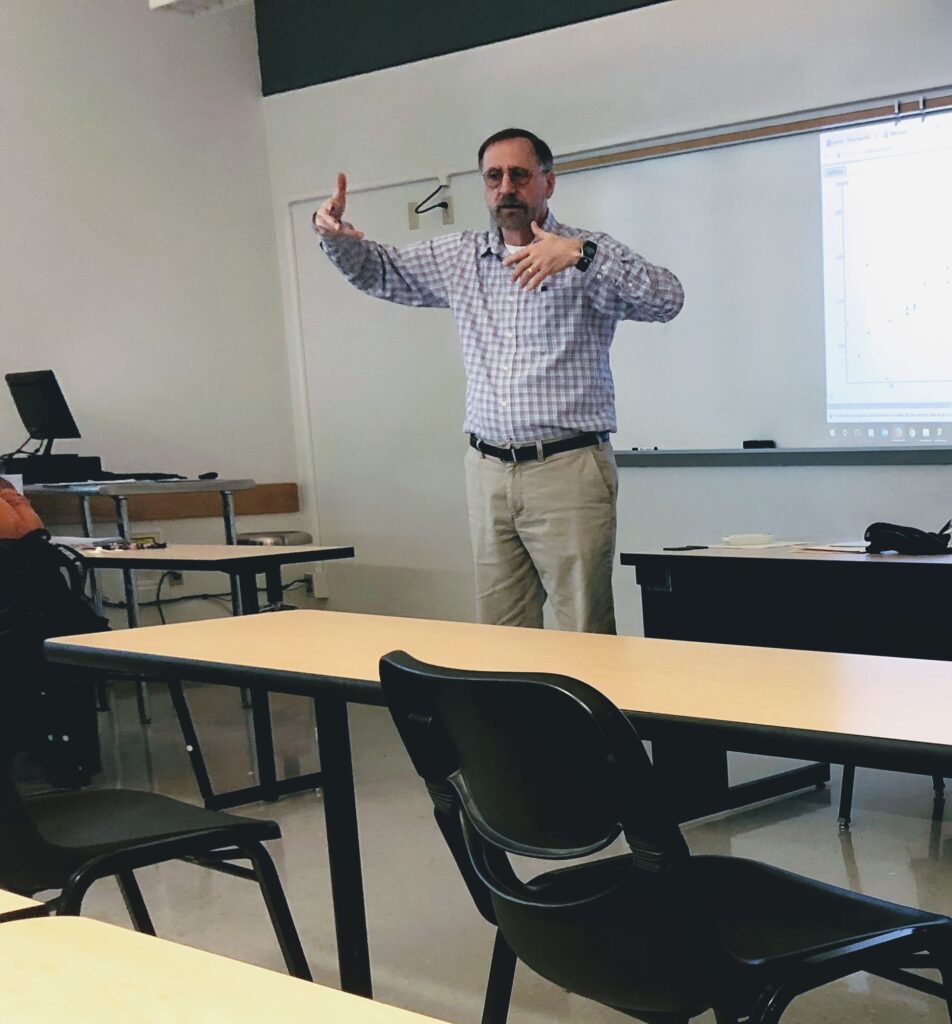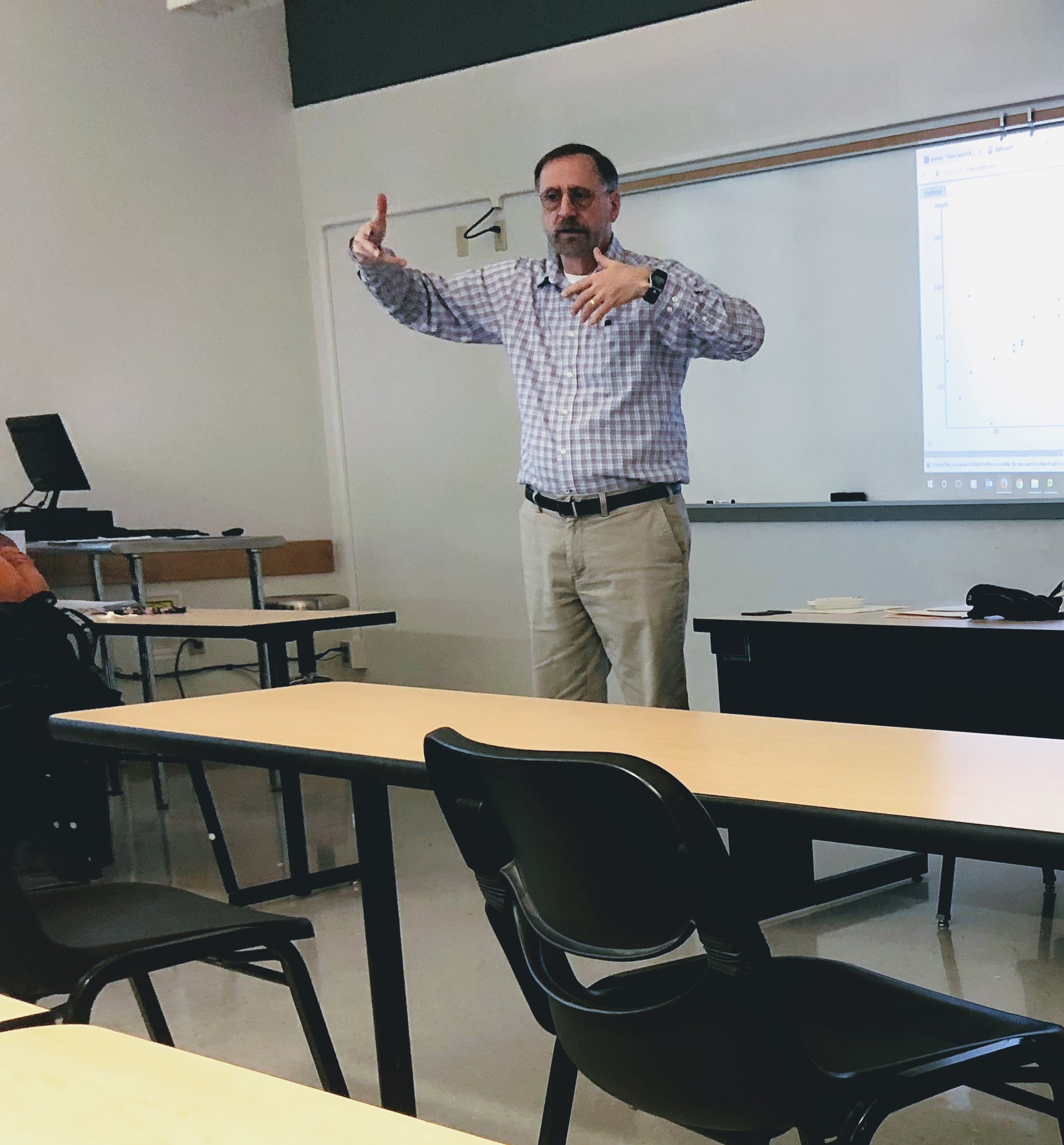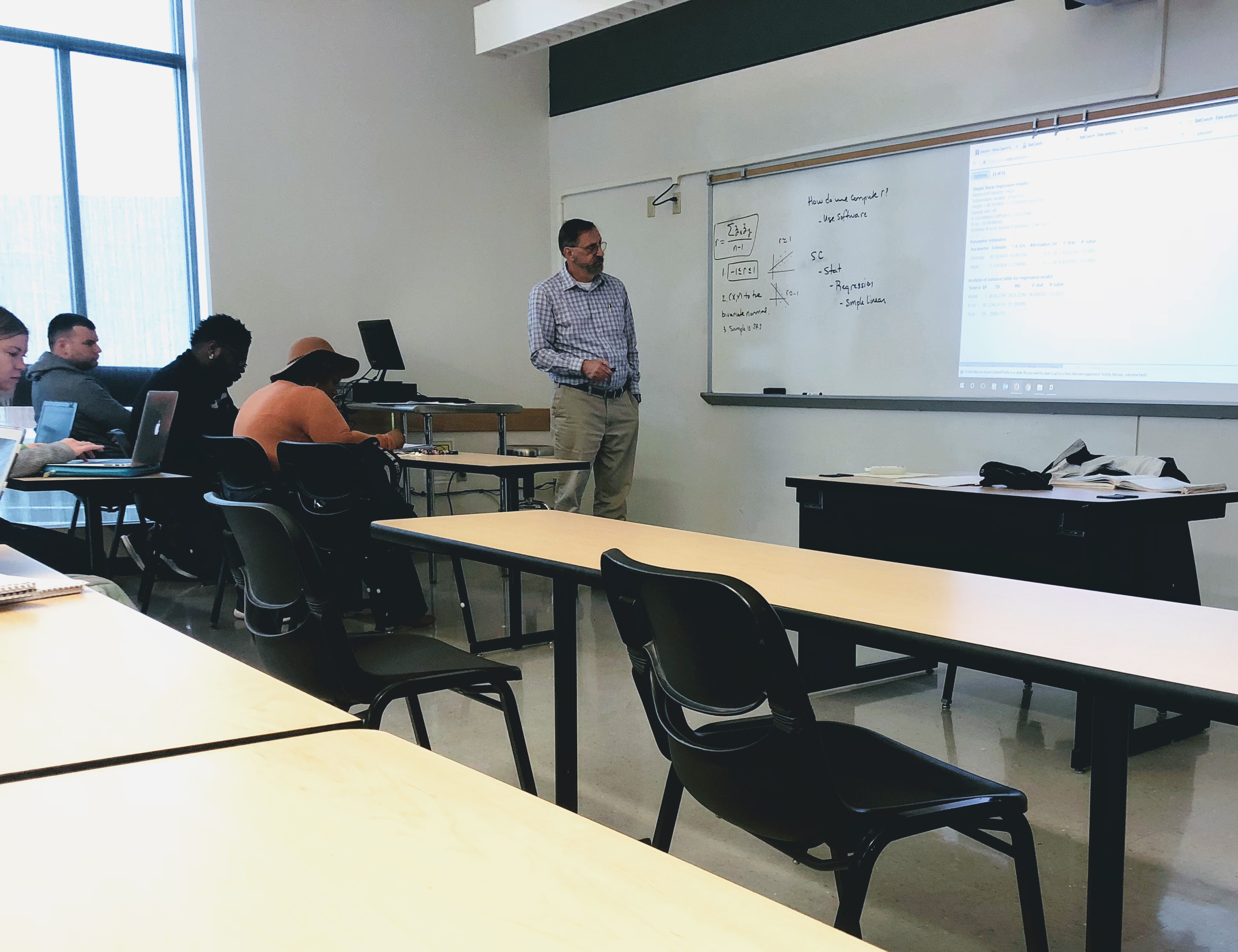
By Quinn Polaski, contributing writer

Dr. Dennis Ryan is a professor of Mathematics at McKendree University. He currently holds three degrees: a bachelor’s, master’s, and a doctorate of applied mathematics. These were all earned at the University of Illinois Chicago (UIC). Here at McKendree, he has taught every mathematics course that is offered; some of his favorites are Complex Variables, Calculus, and Statistics. When he was working at a larger university, he taught entry-level math courses, with class sizes that would range anywhere from 60-80 students. In contrast, the largest math class that I have taken at McKendree had about 18 students. These UIC math classes were not by any means difficult for Dr. Ryan to teach content-wise. They did contain students who were not all math majors, however, and those who did not care to learn were thus difficult to teach.
When I first met Dr. Ryan, it was in complex variables, a 300-level math class that might as well count as a language course. His teaching methods were different from what I was familiar with; he used his own notes written on the chalkboard in precise handwriting, and his own made-up problems as homework, which meant there was no textbook necessary. Equipped with a deep voice that could easily put you to sleep, he was able to keep me awake with some algorithms and equations involving letters that stand for numbers that don’t exist on a number line because they are imaginary or in another dimension. After passing with a B, I made Dr. Ryan my advisor and became good friends with him. This interview was not our first long chat about numbers and math.
When asked how he became infatuated with mathematics he replied, “I was always really good at math and science as a kid, but I was actually probably better with social studies. The emphasis was moving people towards engineering and science, um, there was a lot of competition with the Russians and what not.”
I was appalled at this; one could tell from the long laugh on my recording. To think that students would be pushed to learn numbers and physics to compete with youth from the other side of the planet is something that is almost unheard of in this generation.
Becoming this successful in math is a rigorous task, as it takes much more time and dedication than what many students think. There are very few math majors at McKendree; many times students asking about my major ask why, and say that math is too hard. This made me wonder why so many students struggle with math…
“Well, mathematics is hard. Why do you think there are not many physicists around? Those are really, really hard fields. When I was a student, many business students were former engineers. They weren’t interested in taking five courses in calculus and differential equations.”

Teaching math is also very different than teaching other topics. For most people who have interests that are in technical fields such as accounting or statistics, they don’t need the same details as someone who is studying calculus. Dr. Ryan said that calculus is a “fundamental, intellectual paradigm, upon that we base much off in the modern world.” For someone who has never taken a calculus course this may be difficult to understand, but the connections are there. Some of the main topics in calculus are derivatives and integrals. Basically, you can take a standard, one dimensional (for a lack of a better term) equation and find its “cousin” equations. If you have a “y=t” function for how far your car can go in meters, calculus can give you find the velocity and acceleration functions for any specific time(t). And you can go backwards, using integration, when given an acceleration function. One can see why these principles are ideal for science, technology, engineering, and mathematics (STEM) fields like physics.
Dr. Ryan believes, “To not be educated at least to some level in Calculus is like not having read Shakespeare.” Shakespeare is very old literature, studied by students all over the world, some of whom do not speak English as a first language. Similarly, calculus was invented by Sir Isaac Newton in the 17th century. Newton did not know what a limit was and he was not taught how to derive functions, but he gradually worked towards his discovery through the natural flow of invention. Today, students get the (almost) updated result of calculus, in the form of direct equations. This is similar to a high school student studying Shakespearean literature with English being their second language.
Dr. Ryan has different ideals when it comes to teaching math than those who created the regular common core. Both he and I grew up in the Chicago area and although decades apart, we had a similar yet very different curriculum. As we discussed these, we predominantly talked about a student’s introduction to calculus, as my high school calculus teacher was the reason I became interested in mathematics. Dr. Ryan, who was not introduced to calculus until college, took a few more geometry and trigonometry courses in high school. Dr. Ryan says he is “an opponent of teaching calculus in high school.” He says there are so many other classes one should take before being introduced to calculus, including: advanced algebra, solid and analytic geometry, and theory of equations. Regardless, whenever climbing the mountain that is the introduction to calculus, Dr. Ryan told me that the student’s drive to learn it must turn into an interest. There are exceptions to the grind of math. Dr. Ryan gave a quick shout out to Dr. Heather Dye, whom he said was extremely talented and “unusually gifted,” something I agree with after taking four classes with her.
During the summer Dr. Ryan loves to travel with his wife to places like the Rocky Mountains and Columbia, as he is a bit of an outdoorsman who enjoys hiking and camping. We talked about backpacking in the mountains and getting away from school and work to experience nature, a drastic turn from discussing theorems about calculus. In between grading papers and reading new material, Dr. Ryan likes to play card games, such as bridge and poker. I tried to convince him to play euchre with me and told him it was easy to learn, but the busy man had no time. After seeing on a more personal level how much work the smartest mathematician I know puts in, I am definitely motivated to work harder.
A fascinating article about a fascinating faculty member. Thanks, Quinn. (And thanks for the Shakespeare shout out, too, Dr. Ryan!)
Quinn, thanks for sharing this behind-the-scenes conversation with Dr. Ryan. I am glad to hear that his effort inspires you to work harder!
Quinn, thank you for the wonderful piece on Dr. Ryan! You are lucky, Quinn, to have such exemplary mathematicians, scholars, and life-long learners as role-models. Dr. Ryan is one of the most interesting, well-rounded folks on campus. It is great to see him featured in your article, Quinn